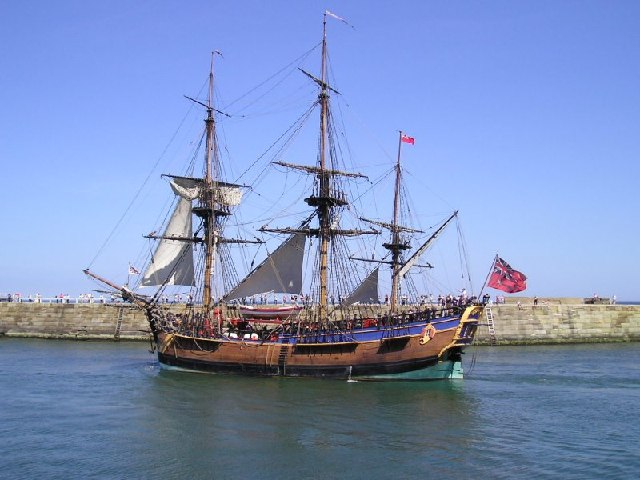Summary | Excerpt | Reviews | Beyond the book | Read-Alikes | Genres & Themes | Author Bio

The Ship That Changed the World
by Peter MooreAn unprecedented history of the storied ship that Darwin said helped add a hemisphere to the civilized world.
The Enlightenment was an age of endeavors, with Britain consumed by the impulse for grand projects undertaken at speed. Endeavour was also the name given to a collier bought by the Royal Navy in 1768. It was a commonplace coal-carrying vessel that no one could have guessed would go on to become the most significant ship in the chronicle of British exploration.
The first history of its kind, Peter Moore's Endeavour: The Ship That Changed the World is a revealing and comprehensive account of the storied ship's role in shaping the Western world. Endeavour famously carried James Cook on his first major voyage, charting for the first time New Zealand and the eastern coast of Australia. Yet it was a ship with many lives: During the battles for control of New York in 1776, she witnessed the bloody birth of the republic. As well as carrying botanists, a Polynesian priest, and the remains of the first kangaroo to arrive in Britain, she transported Newcastle coal and Hessian soldiers. NASA ultimately named a space shuttle in her honor. But to others she would be a toxic symbol of imperialism.
Through careful research, Moore tells the story of one of history's most important sailing ships, and in turn shines new light on the ambition and consequences of the Age of Enlightenment.
Moore's prose occasionally bogs down the narrative, as does his tendency to elaborate on minor details...Endeavour is obviously a labor of love, however, extensively researched and engaging, and well worth plowing through the less relevant sections...continued
Full Review
(683 words)
This review is available to non-members for a limited time. For full access,
become a member today.
(Reviewed by Kim Kovacs).
 The HMS Endeavour, the eponymous subject of Peter Moore's book, was purchased by the British Navy in 1768. One of its missions was to transport a group of scientists to Tahiti where they could make astronomical measurements during a rare event called the Transit of Venus.
The HMS Endeavour, the eponymous subject of Peter Moore's book, was purchased by the British Navy in 1768. One of its missions was to transport a group of scientists to Tahiti where they could make astronomical measurements during a rare event called the Transit of Venus.
Venus is the third brightest object in the night sky, after the Sun and the Moon. Named after the Roman goddess of love and beauty, it is the second planet from the sun.
In astronomical terms, a transit is when a planet can be observed crossing the face of the star it orbits. From our position on the third planet from the sun, there are only two transits we can directly watch: Mercury and Venus. Due to differences in how Mercury and Venus orbit the Sun, a transit ...
This "beyond the book" feature is available to non-members for a limited time. Join today for full access.

If you liked Endeavour, try these:

by Hampton Sides
Published 2025
From New York Times bestselling author Hampton Sides, an epic account of the most momentous voyage of the Age of Exploration, which culminated in Captain James Cook's death in Hawaii, and left a complex and controversial legacy still debated to this day

by David Grann
Published 2025
Winner: BookBrowse Nonfiction Award 2023
From the #1 New York Times bestselling author of Killers of the Flower Moon, a page-turning story of shipwreck, survival, and savagery, culminating in a court martial that reveals a shocking truth. The powerful narrative reveals the deeper meaning of the events on The Wager, showing that it was not ...



Men are more moral than they think...
Click Here to find out who said this, as well as discovering other famous literary quotes!